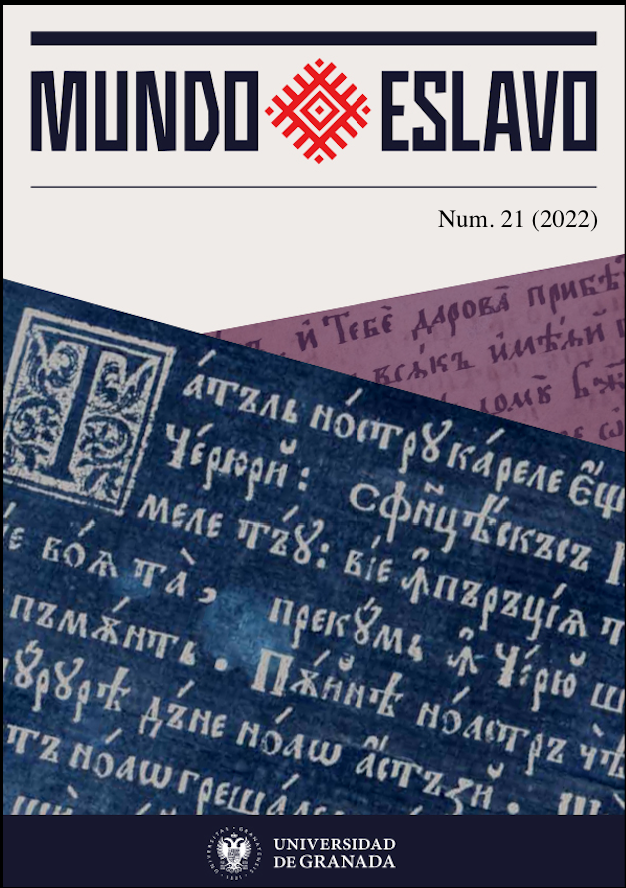Toward a post-satanic black metal: The deconstruction of the divine/demonic binary in Batushka’s Litourgiya
DOI:
https://doi.org/10.30827/meslav.vi21.25165Abstract
This article analizes the LP Litourgiya (2015) by Polish black metal band Batushka (commercially stylized as Батюшка). The text focuses on the band’s spiritual approach to the topic of satanism, one which has conditioned the history of this subgenre of metal music from its very beginnings. After a brief introduction to the basics of this genre, the article contextualizes the use of satanic spirituality in black metal lyrics using different studies dedicated to the study of the genre. Later, the text illustrates the way in which Batushka breaks the traditional binary divine/demonic established in the black metal. First, the band’s lyrics show an approach to “the satanic” that does not fit in the oppositional and reverse logics argued by some critics, since these do not reference the figure of Satan and, in fact, appropriate texts and hymns from the Eastern Orthodox liturgy. Additionally, the band makes use of themes uniquely present in Orthodox theology, specifically the idea of theosis, which, differing from the Catholic/Protestant theological bases of black metal, enable a poetical escape from the divine/demonic binary that nurtures the genre’s lyricism.
Downloads
Downloads
Published
How to Cite
Issue
Section
License

CC BY-SA: This license allows reusers to distribute, remix, adapt, and build upon the material in any medium or format, so long as attribution is given to the creator. The license allows for commercial use. If you remix, adapt, or build upon the material, you must license the modified material under identical terms.
CC BY-SA includes the following elements:
BY ![]() – Credit must be given to the creator
– Credit must be given to the creator
SA ![]() – Adaptations must be shared under the same terms
– Adaptations must be shared under the same terms
Authors who publish with this journal agree to the following terms:
1. Authors retain copyright and grant the journal right of first publication with the work simultaneously licensed under a Creative Commons Attribution License that allows others to share the work with an acknowledgement of the work's authorship and initial publication in this journal.
2. Authors are able to enter into separate, additional contractual arrangements for the non-exclusive distribution of the journal's published version of the work (e.g., post it to an institutional repository or publish it in a book), with an acknowledgement of its initial publication in this journal.
3. Authors are permitted and encouraged to post their work online (e.g., in institutional repositories or on their website) prior to and during the submission process, as it can lead to productive exchanges, as well as earlier and greater citation of published work (See The Effect of Open Access).













